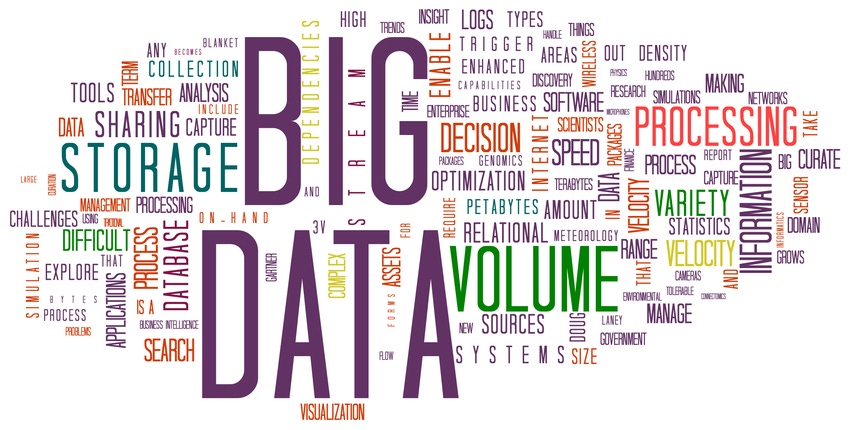Codec's Co-Founders Talk Marketing, AI and Big Data
March 2, 2017

We had the pleasure to talk to the co-founders of the new startup Codec, Martin Adams and Tom Graham, about their company, the future of artificial intelligence and how their platform uses AI to help brands, publishers and creatives create content specifically for their customers.
Who exactly is Codec and what do they do? Co-founders Martin Adams and Tom Graham were on-hand to explain. “Codec is a content marketing platform that uses artificial intelligence and machine learning to tell brands, publishers and creatives what content to create.” Sounds pretty straightforward, but actually, it’s easier said than done.
When asked to specify which AI technologies they are developing, we quickly realised that they are really pushing the tech for the marketing world. “We analyse large bodies of text, images and videos; we also use deep learning and AI to analyse users’ behaviour and how it changes over time and how large networks of users interact with each others,” they said.
Codec’s co-founders were also keen to stress that, as far as they know, they are the only ones doing what they do. “Codec is totally unique in what we do both in terms of what we provide and when we provide it.” They continued, “No one else in the market is using objective data to tell their customers what content to create before they create it.”
After having spoken to the startup’s co-founders, it’s obvious that Codec has spotted a gap in the market and are the only ones filling that void, which is great for them and for the companies who have been in desperate need of their services. “There is a swell of enthusiasm to use data in the everyday decision making processes but they really just can’t do it because there isn’t data available,” Adams and Graham explained.
They continued, “Codec is filling this gap in the market by bringing data and information to marketers and creatives when it really mattered – at the beginning of the creation process. We don’t really have any other players doing that similar kind of thing.”
Codec is not alone in attempting to use AI. There are a whole slew of enterprises looking to adopt the ever-expanding technology, yet this comes with its own challenges, as Adams and Graham explained. “The biggest challenges for an enterprise who wants to adopt AI for that marketing-specific purpose are really around capability, scalability and efficiency.”
They continued, “Firstly, there is a lot of infrastructure that you have to build - you would need six or seven data scientists over a couple of years period to build the machines that you need to analyse these vast swathes of very fast and thick data. Secondly, analysing image-rich media data is very computing-intensive, so it is a very difficult engineering task that brands, agencies or publishers simply do not have the in house resources for.”
Yet Adams and Graham also wanted to highlight AI’s huge potential for marketing companies, and that this is where Codec becomes indispensable for the industry. “For the marketing industry, AI has great potential in helping marketers refine their creative choices by analysing the huge amounts of social data available - this is what what Codec is doing, basically.”
Using AI to help gather data on potential consumers is what Codec is all about, however, how can the adoption of the tech really help to create positive advertising campaigns and content for consumers? “What you should really be doing is using audience data to understand what people would want so that you make content that will resonate with them, content that is relevant to them. That content will have a much greater chance of being something that they are really interested in – grabbing their attention, holding their attention, and allowing the brand to become part of that cultural moment for an individual consumer,” they explained.
This is known as big data, which is already important for marketers, but Codec’s co-founders see its role evolving even further in the future. “Big data is essentially a revolution for audience identification and for understanding human beings.” They continued, “Never before have we been able to access so much data about such a diverse group of people as has been brought together by the social web – Facebook, Twitter, by all the different social outlets by which individuals publicly publish their preferences, their likes, their dislikes, their comments and their opinions for other people to see.”
They went on to give us their vision of how big data will be used in the future. “So we see a world where we will continue to broadcast data about ourselves on an individual level and brands, publishers, people making creative decisions, and people who have commercial motives will continue to use that data to ever-increasingly understand who you are as an individual, and who you are as a group of people and the different groups and tribes and the different cultures and subcultures that you identify with and that you belong to.”
But what about Codec’s future? It’s exciting times for the startup, they’ve only been trading since 2015 and have already worked with big names such as Unilever, L’Oreal and Universal Music to name a few. Yet Codec’s co-founders have even bigger plans for their new company. “In five years, we would like for Codec to become (or be on the way to becoming) the platform of reference for content decisions within the organisation – not just marketers and publishers, but anybody looking to create, publish, distribute content, or make a creative decision.” They continued, “We want to be right at the centre of all of the decisions that brands, publishers and creatives make around how they communicate with the world.”
Image Credit: Camelia.boban
About the Author(s)
You May Also Like
.jpg?width=700&auto=webp&quality=80&disable=upscale)
.jpg?width=700&auto=webp&quality=80&disable=upscale)
.jpg?width=700&auto=webp&quality=80&disable=upscale)


.jpg?width=300&auto=webp&quality=80&disable=upscale)

.jpg?width=300&auto=webp&quality=80&disable=upscale)